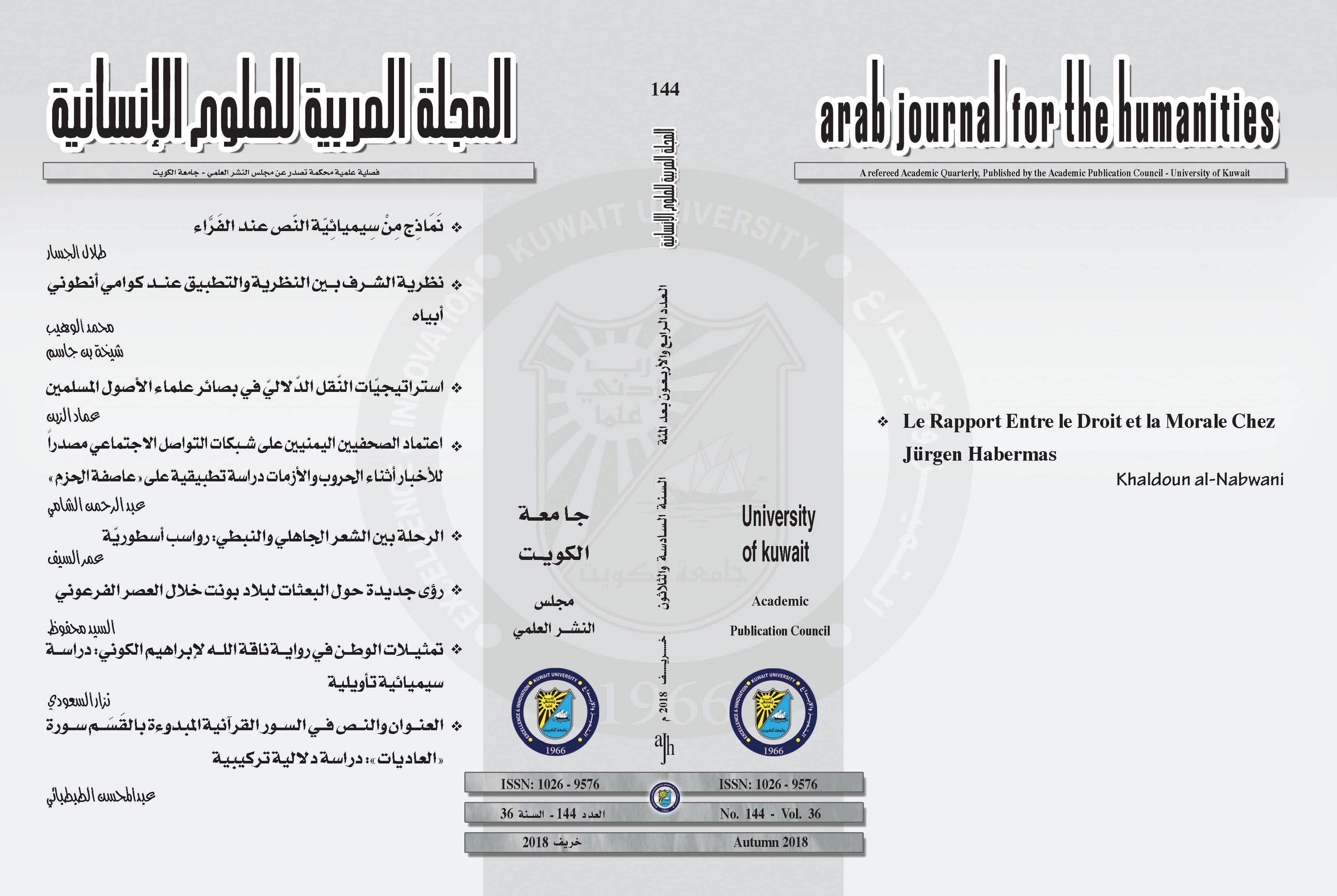The Representations of the Concept of "the Homeland" in Ibrahim al-Koni's Novel Naqat Allah: A Semiotic Stud.
Abstract
This study aims to explain representations of the homeland in the novel Naqat Allah, by Ibrahim al-Koni. In this novel, there are many expressions that represent the marginalized nation of the great desert (Sahara, the homeland of the Tuareg). This marginalized minority suffered from the dominance of other countries like Mali and France. The researcher found that the novelist, al-Koni, tried to highlight the image of the lost homeland by relying on the notion of cultural opposites which are: reason and madness, sleeplessness and wakefulness, material and symbolic, tranquility and musicality, impact and wind, and water and blood. Both the physical geography and the spiritual mystic world were the most important formations for the novelist. In addition, through his discussion about the homeland, al-Koni historicizes the Tuareg traditions, and their revolutions against the French occupation and he expresses the identity of this marginalized minority.
















